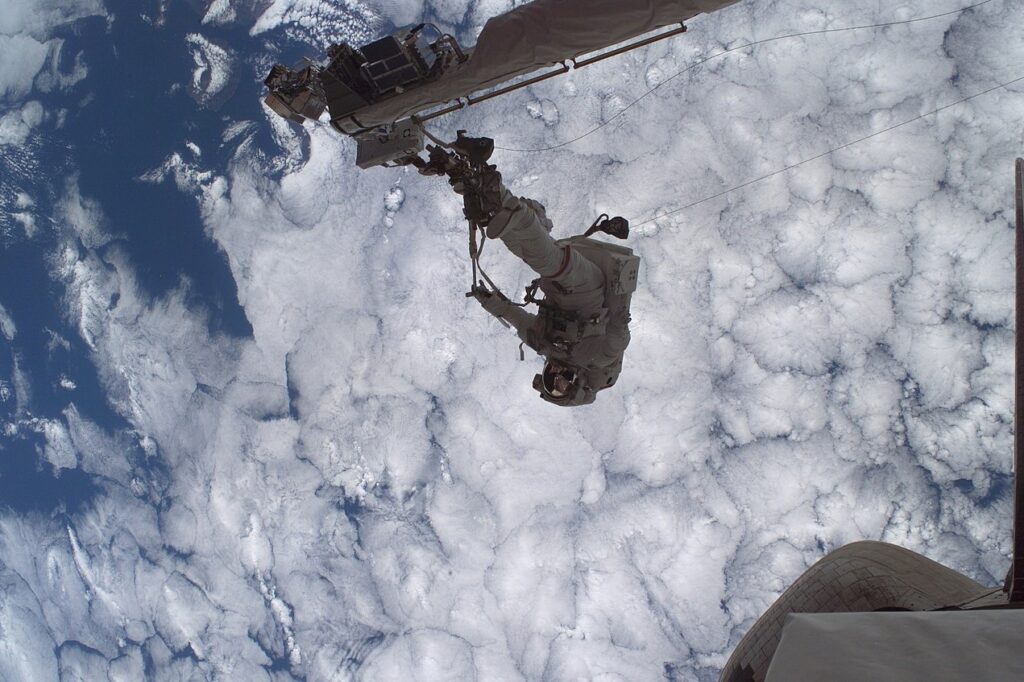NASA has postponed two International Space Station (ISS) spacewalks scheduled for October 12 and October 20, 2023, after a coolant leak was detected in a radiator on the Russian Nauka multipurpose laboratory module (MLM).
The leak was noticed during routine checks on October 9, 2023 when the Russian space station laboratory module, Nauka (Science in English) appeared to be leaking coolant from an external radiator. While the leak has since stopped, the cause is currently being investigated.
“Teams on the ground continue to investigate the cause of the leak, and additional updates will be made as soon as available,” NASA said in a statement released on October 11, 2023.
NASA officials also stressed that the backup radiator leak has “no impact on the crew or space station operations” for the time being and said the “primary radiator on Nauka continues to work normally”.
The primary coolant used in the ISS is ammonia because of its excellent heat transfer properties and ability to remain in a liquid state over a broad range of temperatures.
Spacewalking, or extravehicular activity (EVA), on the ISS in the presence of a coolant leak, such as ammonia, could pose significant risks. Ammonia is highly toxic to humans, and any contact during a spacewalk could endanger the health of astronauts, necessitating extra precautions.
Furthermore, leaked ammonia can still freeze in space, potentially adhering to astronauts’ suits or equipment and posing a risk upon re-entry into the ISS.
At atmospheric pressure, it has a freezing point of -77.7°C (-107.8°F). However, temperatures in the cold recesses of space, particularly in shadowed areas, can fall below this.
Additionally, the leak can obstruct vision, interfere with equipment, and complicate emergency safety protocols. Given these risks, postponing spacewalks during a coolant leak is a necessary precaution to ensure astronaut safety.

